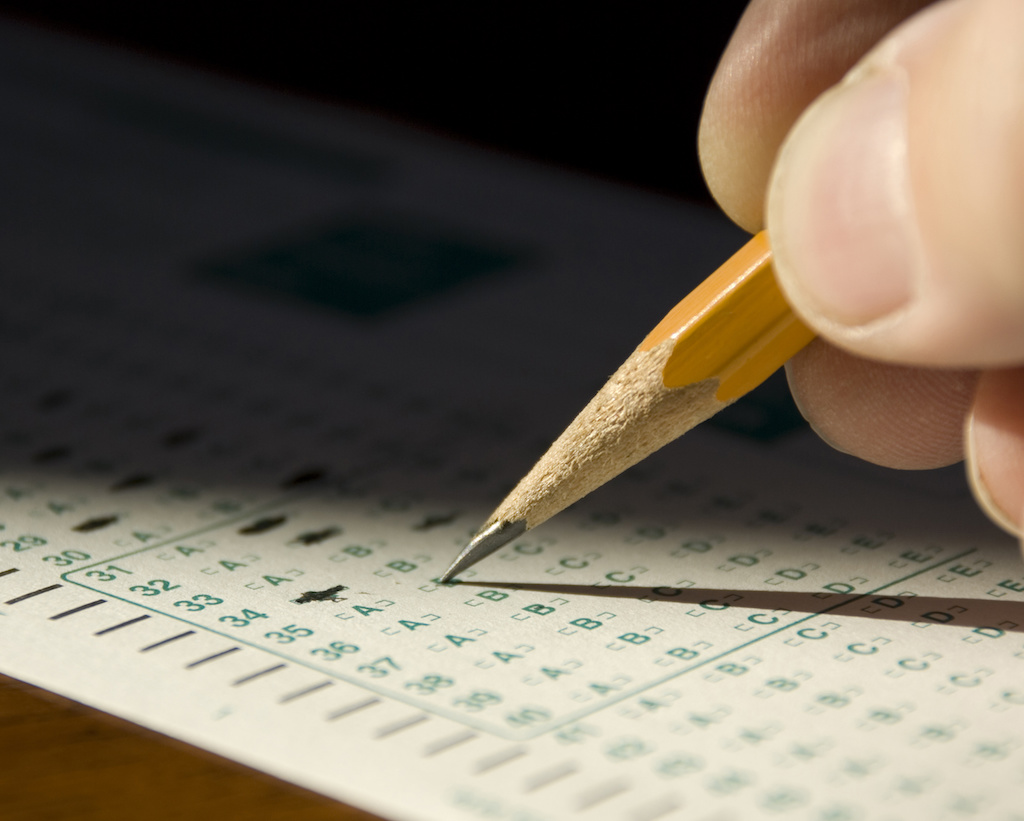 In the Aug. 24, 2015 issue of Bloomberg Businessweek, Natalie Kitroeff discusses the results of the July 2014 bar exam. The National Conference of Bar Examiners (NCBE) creates and scores the multiple choice part of the test used in all states except Louisiana. Last year, those results dropped the most ever in the exam’s 40-plus year history. Nearly 80 law school deans, mostly representing schools ranking in the bottom half, wrote to NCBE President Erica Moeser asking for an investigation to determine the integrity and fairness of the exam. Ms. Moeser responded that graduates who sat for the exam were less capable than graduates who sat for the 2013 exam and suggested that the deans of those schools review the LSAT scores of students who had entered the schools three years earlier.
In the Aug. 24, 2015 issue of Bloomberg Businessweek, Natalie Kitroeff discusses the results of the July 2014 bar exam. The National Conference of Bar Examiners (NCBE) creates and scores the multiple choice part of the test used in all states except Louisiana. Last year, those results dropped the most ever in the exam’s 40-plus year history. Nearly 80 law school deans, mostly representing schools ranking in the bottom half, wrote to NCBE President Erica Moeser asking for an investigation to determine the integrity and fairness of the exam. Ms. Moeser responded that graduates who sat for the exam were less capable than graduates who sat for the 2013 exam and suggested that the deans of those schools review the LSAT scores of students who had entered the schools three years earlier.
Critics aligning with both sides of this issue anxiously await the results of this year’s bar exam administered last month to see if last year’s results were an anomaly or indicate a bigger problem. Law school enrollments have declined to a 30-year low and some less-selective schools have scrambled to fill all available seats that were full as recently as five years ago. Moeser states that the fact that a person earned a J.D. does not mean that they should pass the bar exam if they were underqualified. In fact, most law schools have seen LSAT scores at the 25th percentile drop since 2010, the first year of the current enrollment decline. Moeser’s guess is that scores for the July 2015 exam will drop as well based on the lower average LSAT scores for the 25th percentile of students admitted to law school three years ago.
Approximately 50,000 law school graduates take the bar exam annually. They will receive their results over the next few weeks. If Ms. Moeser’s hunch is correct, another year of lower scores will continue last year’s debate. Assuming that NCBE has not changed its process for developing exam questions, I would argue that she is correct and that schools need to remedy the situation through better bar exam preparation of their students/graduates or by reviewing their admissions policies. Given the recent declines in enrollments experienced by lower-tier law schools, I assume that they’ll continue to argue that the exam is not fair and/or is biased.
Ms. Kitroeff’s article isn’t the first that is critical of law schools. Brian Tamanaha’s book, Failing Law Schools, was eye-opening. Mr. Tamanaha, a law professor and associate dean, wrote that decreasing demand for lawyers was creating a greater likelihood that graduates would be unable to earn enough as a lawyer to repay their average loan balance of $125,000. Tamanaha was particularly critical of accreditation rules and practices by the American Bar Association accrediting body. He also criticized the schools’ pursuit of higher U.S. News & World Report ratings and reported that it led to some inflating their outcomes to achieve better rankings. One of his recommendations was that schools create a lower-cost and more practice-oriented model that might require only two years of school and allow graduates to leave with less debt and able to repay their loans through lower- paying public service legal jobs.
The recent drop in law school applications indicates that prospective students are wary of the cost/benefit of attending. Law school deans seeking to stem the tide of declining enrollments may want to consider some of Mr. Tamanaha’s criticisms, as well as Ms. Moeser’s. Otherwise, the enrollment decline is likely to continue.











